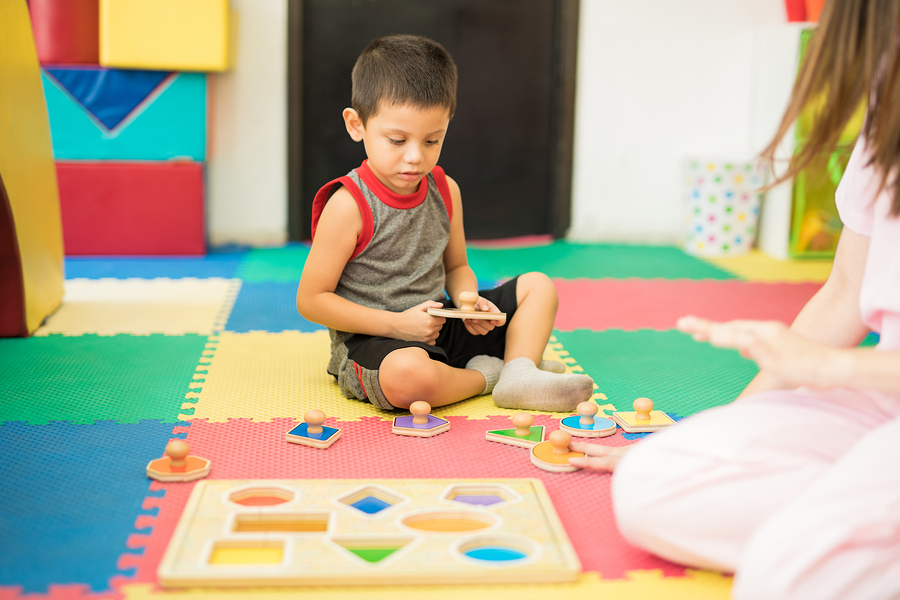 There are many different modalities of play therapy. While there are different types, all of the forms use play as the main form of communication. Play is thought to be a child’s natural language, so toys are an ordinary way for a child to communicate. Much research suggests that children 9 years and below can benefit from play therapy.
There are many different modalities of play therapy. While there are different types, all of the forms use play as the main form of communication. Play is thought to be a child’s natural language, so toys are an ordinary way for a child to communicate. Much research suggests that children 9 years and below can benefit from play therapy.
One of my favorite quotes states that “After a hard day a child doesn’t say ‘let’s talk’, instead they say ‘come play with me’.” This is such an important quote for parents. Many parents try to ask questions to emotionally connect with their young children. For instance, “How was your day?” is often met with “fine.” Taking play out of emotional communication can be challenging for young children. Instead of using open ended questions to connect with your child, try using one of these play ideas.
Chutes and Ladders: Chutes and Ladders is one of the original games for young children. In its purest form, it can help with emotional regulation, as the young child has to regulate their emotions with the disappointments of the chutes and joys of the ladders. However, adding a feelings component can help your child talk and express emotions. When landing on the ladder, have the player talk about something that helps them cope when things are challenging. For instance, getting a hug, deep breaths, or talking to a friend. When landing on a chute, have the player talk about a trigger, such as not getting enough sleep, when things seem unfair, or being hungry. This teaches emotional awareness and problem solving skills!
Feelings Uno: Uno is a family favorite. It is fun and interactive. Try adding a feelings component the next time you play with your children. For instance, red can be angry, green worry, yellow happy, and blue sad. Each time you play a certain color you have to tell about a time that you felt a certain emotion. Your children will love knowing that you have moments of anger and worry, too, and you can learn so much about what your children are learning!
Play dough is such a fun way to help a child explore their feelings. Almost any prompt can help your child express something. For instance, you can prompt “lets both create something that represents our most fun activity,” or “lets create something that shows something we are worried about, or excited about.” Instead of asking them to talk about these things, ask them to make it. You might find that they are more willing to share when communicating through play!
Have questions for your child, but they don’t seem to open up? Try question basketball. Make sure to not use anything negative, but more information you want to learn, such as who is your favorite teacher, etc. If you don’t have a real basketball hoop, try using something like an empty box or a garbage can as a basketball hoop. When someone makes a shot, they can ask the other a question from a list. This is a fun way to start conversations while using play.
Art therapy is a psychotherapeutic intervention that incorporates art as a means of an expressive channel. Art therapy can be an effective intervention for clients from preschool through adults, especially because it can be a less defensive environment. Art therapy can have three different stages: goal setting, exploring problems, and solution focused (Bastemur et. al, 2016). Expressing through art does not have to only happen in the therapy room. One of my favorite activities with young children is to teach that anger is often a secondary emotion. This means that when we show anger, we are really experiencing disappointment, fear, rejection, etc. I draw an iceberg and label anger at the top. Underneath the water, I show how large the iceberg really is. In that portion, I write in all the feelings I am also experiencing. This can help your child after they have a big emotional reaction.
Lastly, there are many different forms of parent lead play therapy, such as filial therapy. Find a mental health professional in your area to learn more about it. One of the main principles is allowing your child to lead the play in order to freely express their emotions without judgment and with acceptance. Try spending time each evening letting your child lead the play without direction. You might be surprised how much you connect!
Whatever you choose, remember that for most children under 9 they require some form of play to help express emotions. Play is a fabulous way to connect and spend time with your child. Almost any game can be adapted in some way to help your child talk and explore their emotions!
About the Author

Amy Rollo (old)
, M.A., LPA, LSSP, LPC-SAmy Rollo is a triple licensed mental health provider in Houston, Texas. She is the owner of a large group practice in Houston, Texas, Heights Family Counseling. Heights Family Counseling is a boutique practice that works with young children, adolescents, teens, adults, couples, and families and understands the unique challenges of each stage of life.
Office Location:
2500 Summer Street #1220
Houston, Texas
77007
United States
Phone: 713.380.1151
Contact Amy Rollo (old)
Professional Website:
www.heightsfamilycounseling.com